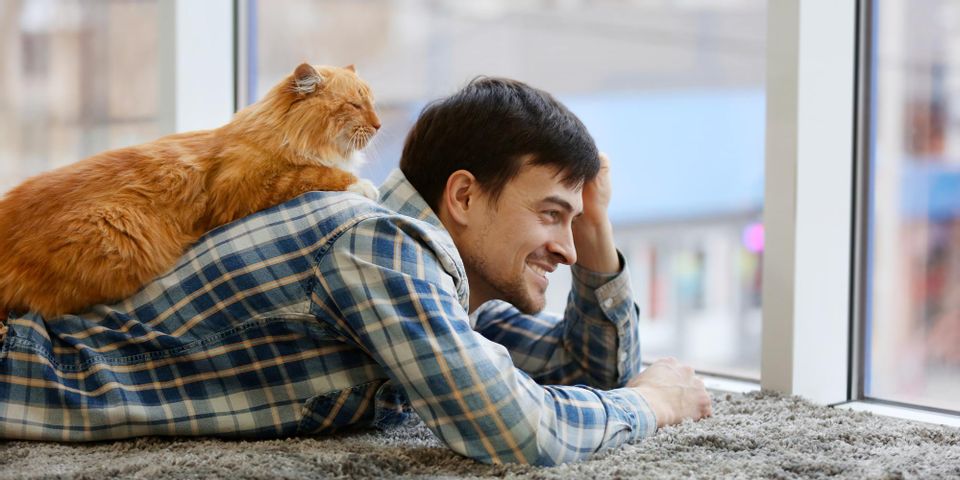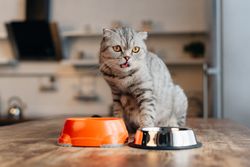
Obesity is a significant pet health problem for all breeds. Cats are especially prone to becoming overweight because they love to eat and live relatively inactive lifestyles. If you’re worried about your feline friend’s health, use the following guide to learn more.
4 FAQ About Cat Obesity
When is a cat overweight?
Going to a vet is the best way to assess if your furry companion is overweight. The animal expert will evaluate the cat’s body condition score from 1 to 5, with 1 being thin, 3 being ideal, and 5 meaning obese.
The veterinarian will establish this score by assessing whether the cat’s bony protrusions like the ribs and waist are visible or buried under a layer of fat. Most cats are between 8 and 9 pounds, but some breeds, like the Maine Coon, can be healthy at 18 pounds. A pet health expert will consider breed when deciding if your cat could benefit from losing weight.
How does obesity happen?
Some cats have a genetic predisposition toward being overweight. Others enjoy too many treats or aren’t eating age-appropriate food. Many families are surprised to learn that they’re feeding their feline too much, providing more calories than the animal needs to maintain energy and get protein and fiber.
What are the various health risks?
 Carrying extra weight can quickly cause joint pain and arthritis in cats. It's difficult to be physically active when obese, making the animal more likely to continue gaining weight.
Carrying extra weight can quickly cause joint pain and arthritis in cats. It's difficult to be physically active when obese, making the animal more likely to continue gaining weight.
Heavy cats have a higher likelihood of developing diabetes, lower urinary tract diseases, and osteoarthritis. They can also develop skin diseases that cause breathing problems or hepatic lipidosis in the liver.
How can you prevent weight gain?
Cat owners should pay strict attention to how many calories they feed their animals per day. Stick with young kitten food formulated with extra calories to encourage growth and optimal pet health for cats under a year old. Use adult food for ages one to 10, and switch to a senior diet for cats older than 11.
If your pet is obese, switch to weight management feed that offers all the nutrients felines need without the extra calories. Encourage your furry friend to play or run around the house to burn off energy. Find a toy they like to play with and interact with them to get their heart racing.
Families concerned about cat obesity should visit Hilton Veterinary Hospital in Monroe County, NY. The business has been open for over 25 years, providing modern medicine and innovative care for cats, dogs, and exotic animals. Call the Hilton-area pet health practice at (585) 392-2937 or visit the website to learn about their latest offerings.
About the Business
Have a question? Ask the experts!
Send your question

